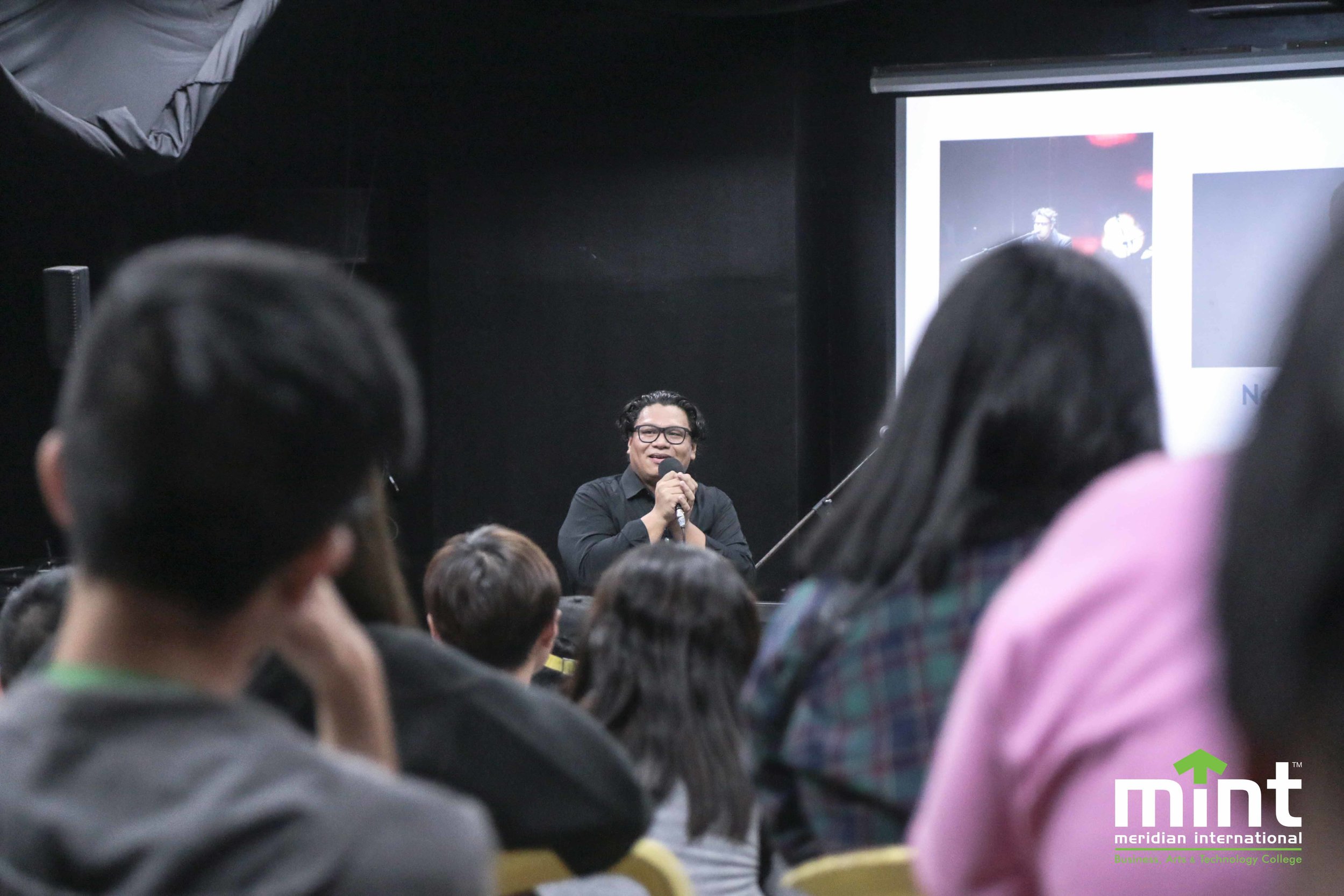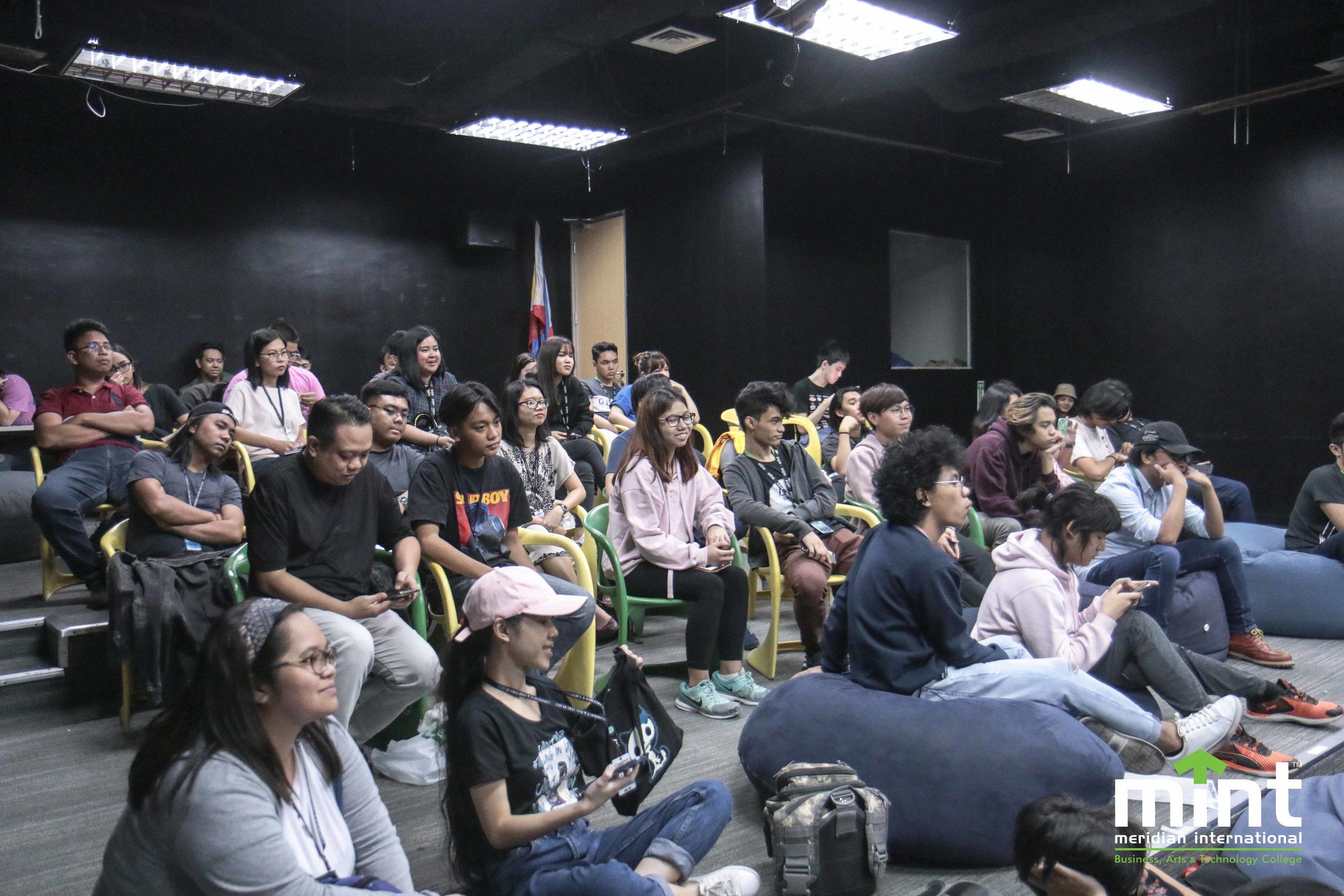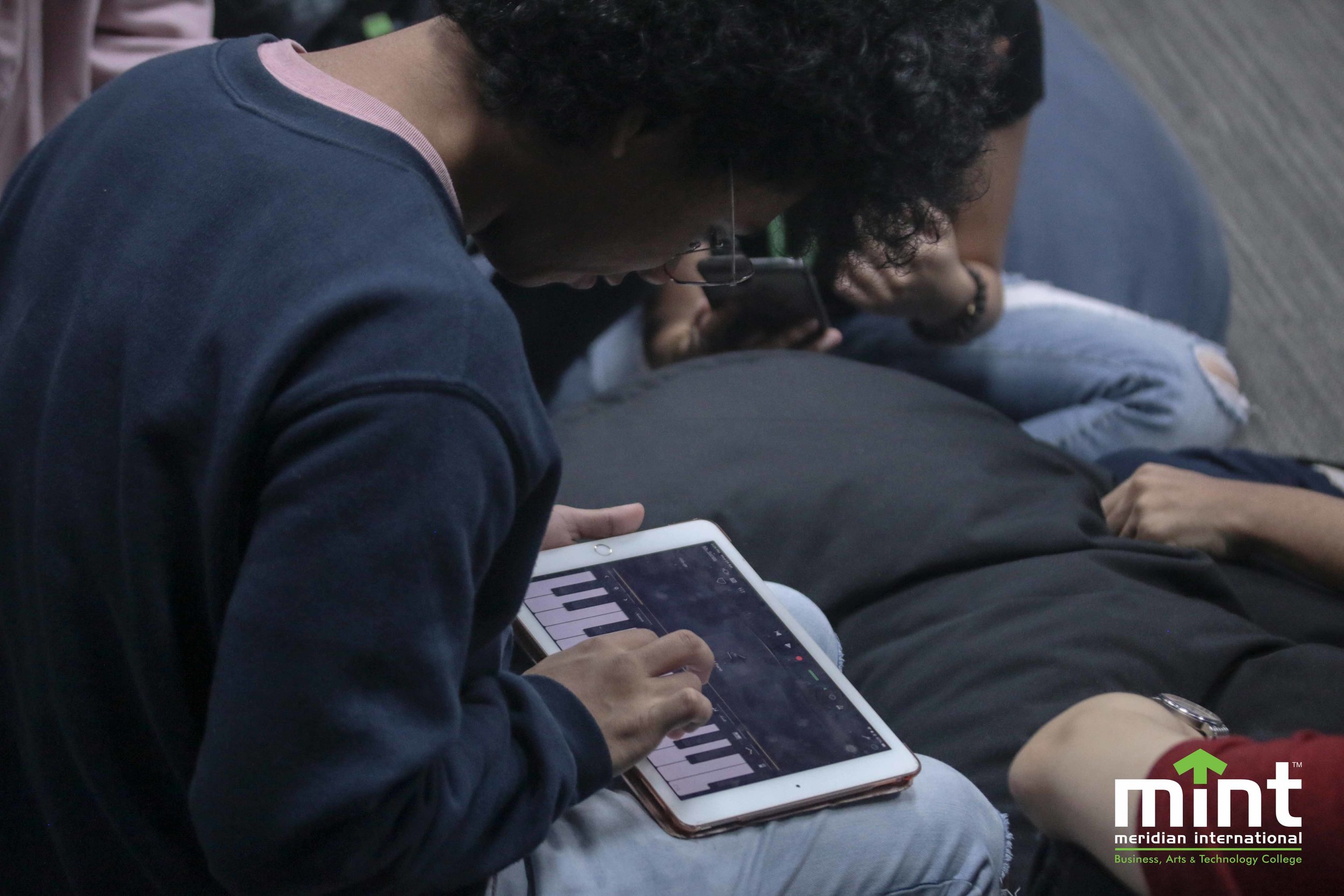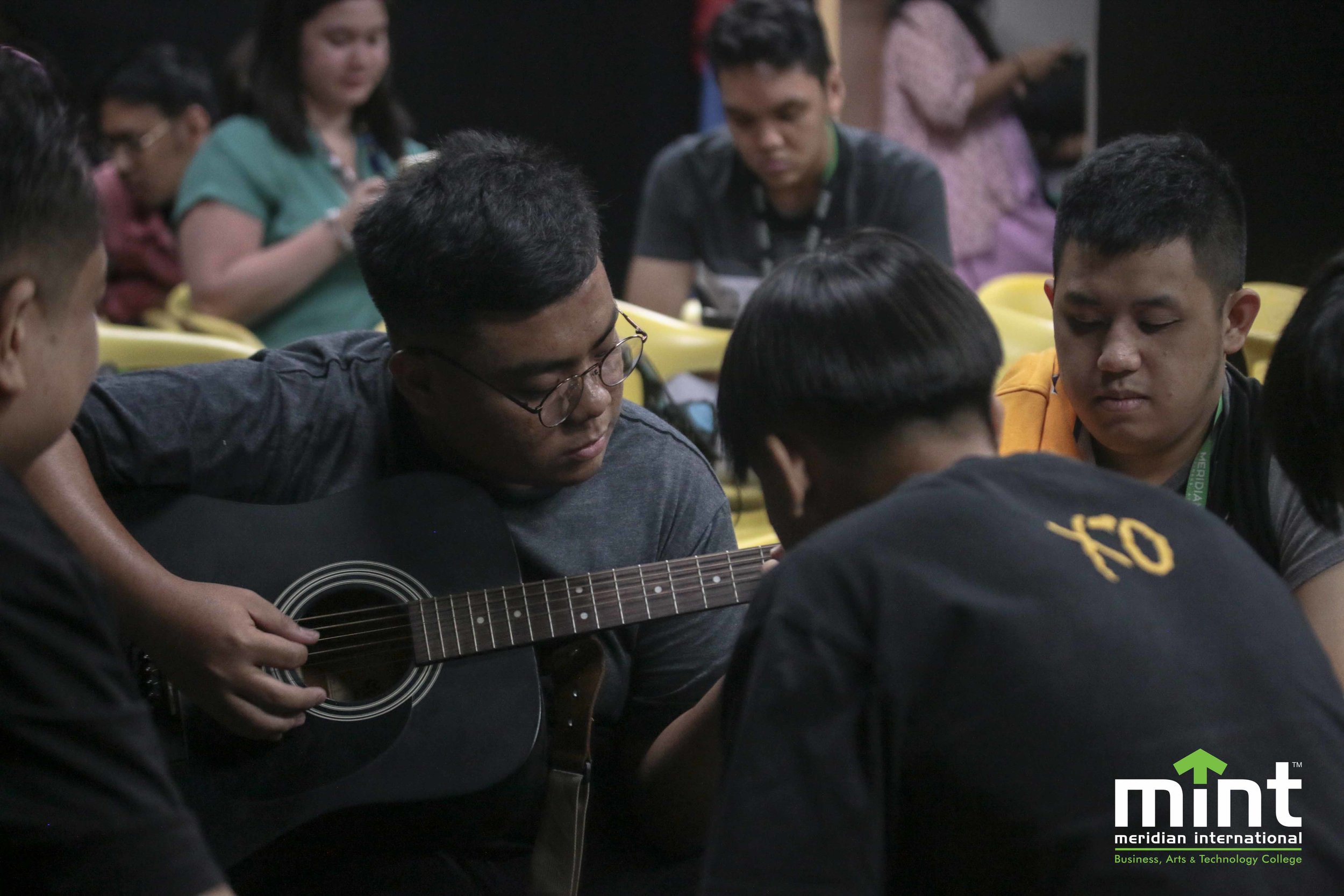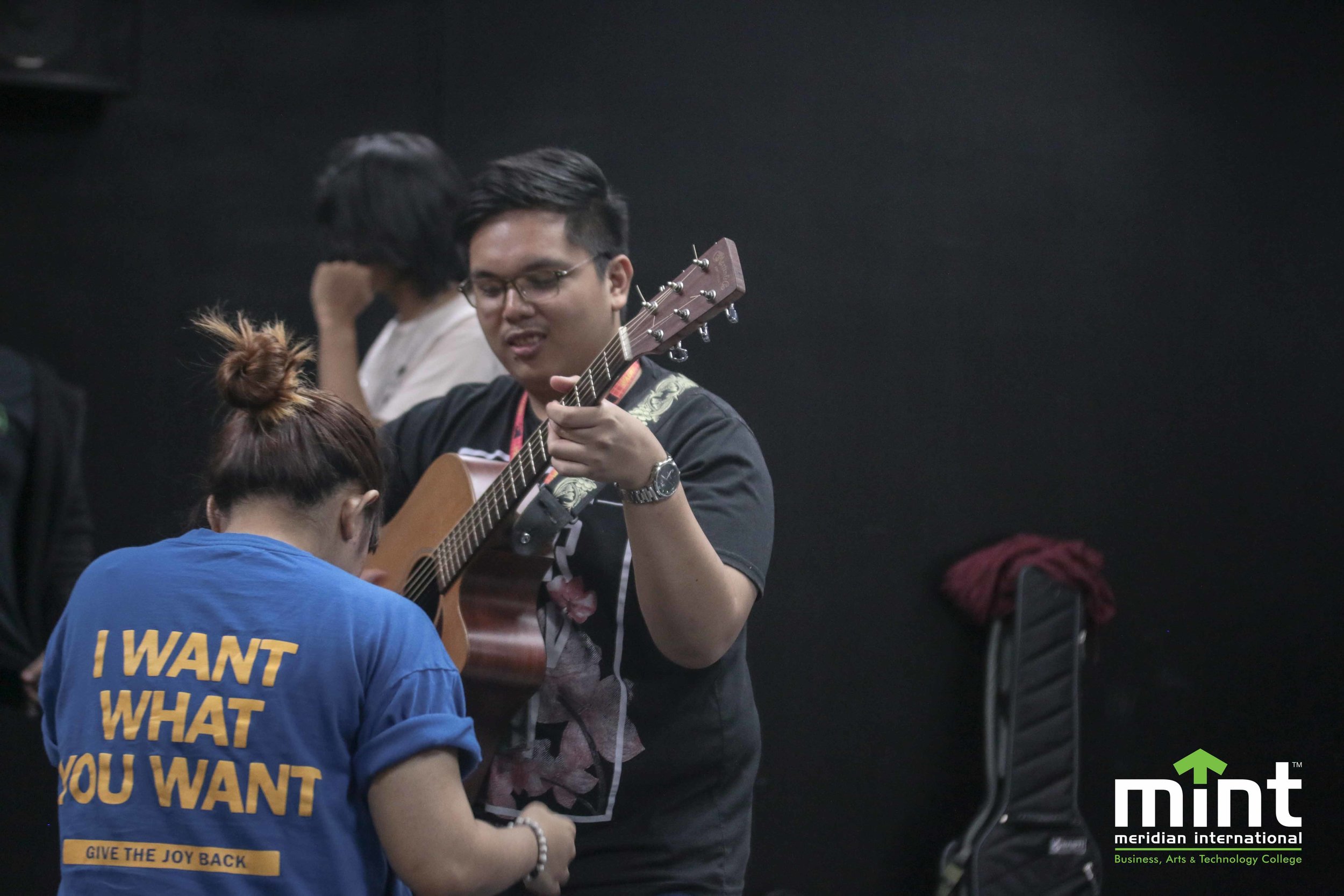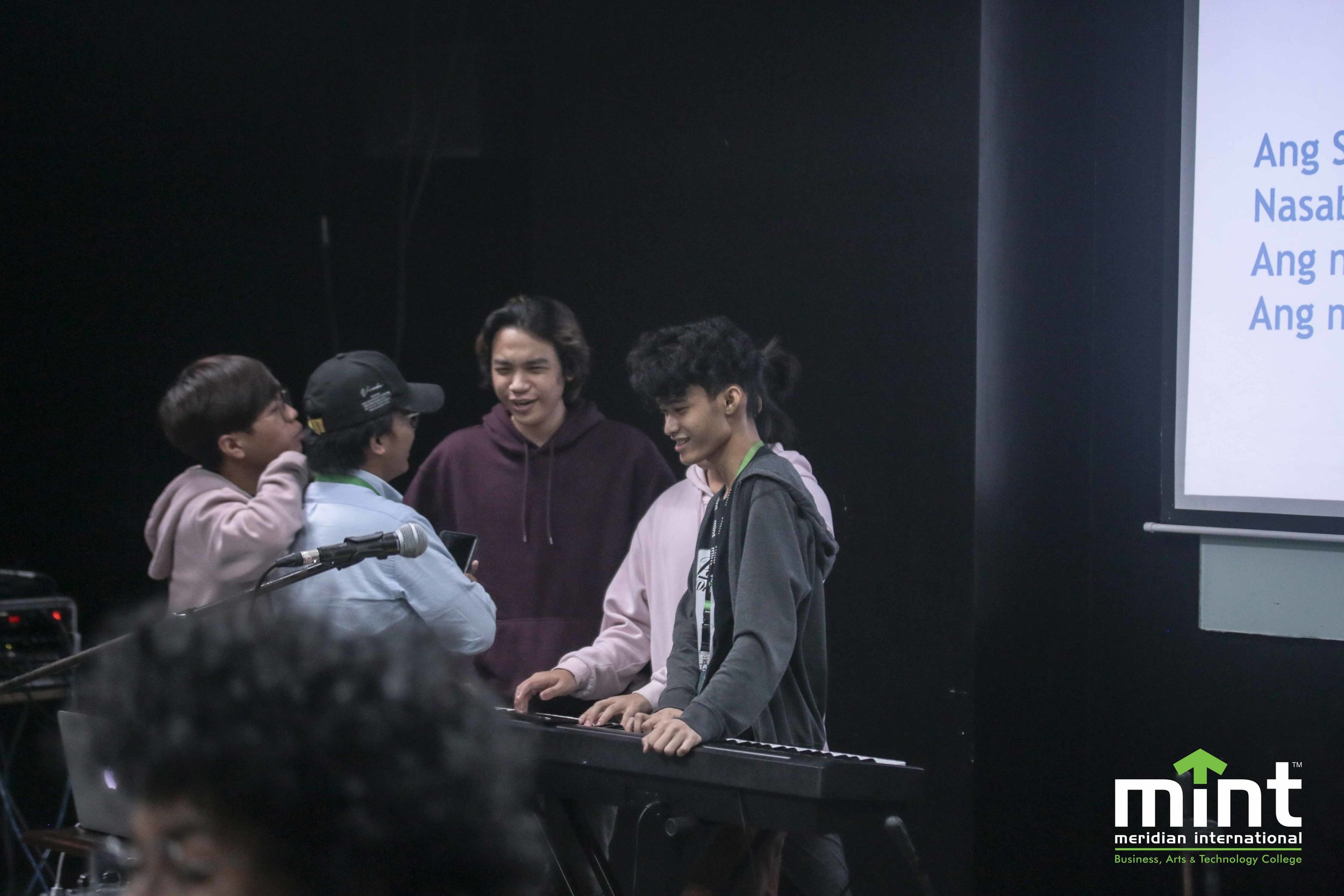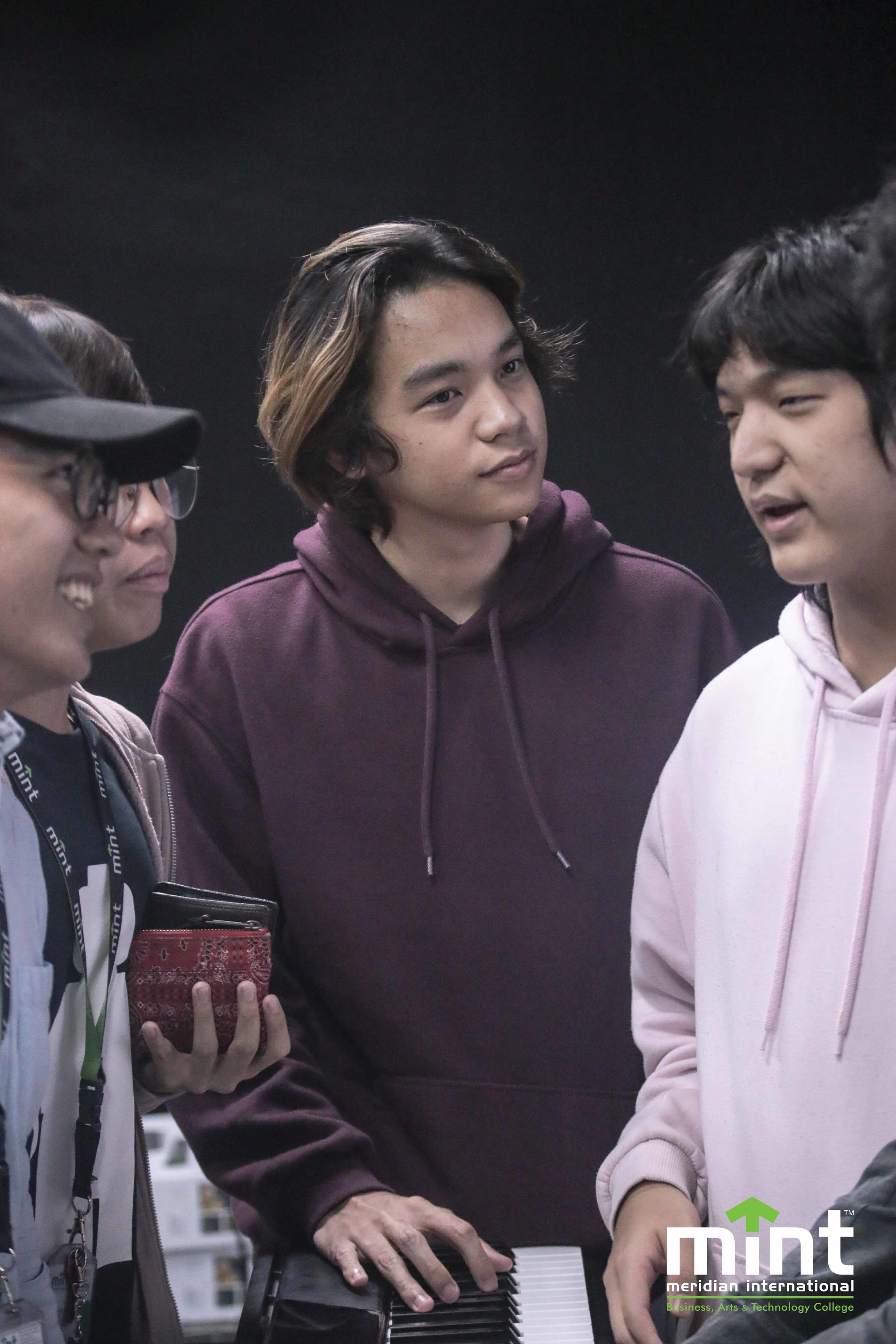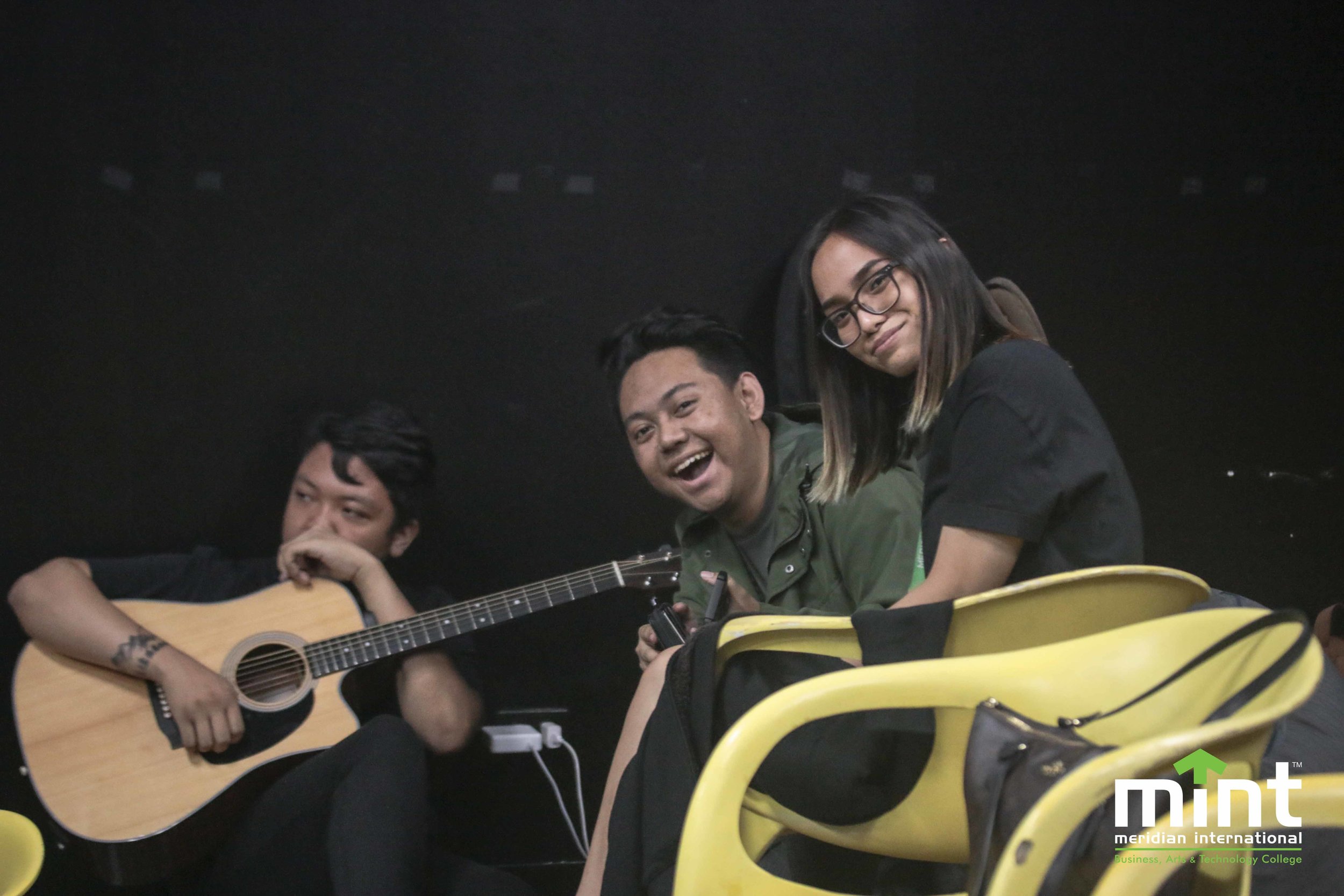Photos by Ivan Pasia
It’s a once-in-a-lifetime event for Music Business Management students and other attendees to hear from OPM artists themselves their experience in surviving and thriving in the local music scene.
This is why the audience grab the opportunity to not only show their songwriting prowess, but also the chance to know the thoughts of folk singer-songwriter Noel Cabangon, and Itchyworms’ bassist-drummer and also a songwriter himself, Jazz Nicolas, about the workings of the local music scene.
Here’s a rundown of their exchange with the two OPM artists:
How do you combat writer’s block?
Jazz (J): I do activities that would made me ‘feel’. At times, I read a book, watch movies, or a TV show. Doon ako nakakahugot ng scenario that I can expound in a song later on. Sometimes, I [also] take a walk. I go outside and watch people that are passing by. I observe them and think, “ano kaya problema nito?” (laughs). Sa ganyang paraan, pwede na ako mag-kwento ulit.
Noel (N): Para sa akin, iniiwan mo muna. Tapos, babalikan ko ulit. In my case though, ideas are already clear in my mind. Kasi, if the idea is clear, maiisip mo na agad kung paano mo siya ikukwento, saan mo siya dadalhin. It’s just a draft, no need to worry yourselves. Just write what you can in the moment, rest, then after that, you can always rewrite and polish it. You can’t force yourself if you’re in a slump. Minsan, nauubos din ang ideas.
What do you do if you thought of better lyrics but the song is already recorded?
N: Kapag na-distribute na ‘yung kanta, iyon na iyon. Pero kung may malalaman kang iba na magre-record ng kanta mo, kausapin mo na palitan nalang ‘yung line na iyon. (laughs)
J: Marami akong lyrics na ganoon. ‘Yung mga kanta na may mga parts na dapat wala doon o kaya naman, may mas maganda kang naisip instead of that line.
N: Kung mapapansin ninyo, may mga artists na iba ‘yung live version nila sa kung ano yung ni-record nila. Iniiba talaga nila yung kanta kapag pine-perform live.
J: Producers could help you review your song with you before you put your song out.
N: That's because sila rin ‘yung makakapansin ng blind spots mo as you make the song. Your producer can pinpoint which parts could be improved.
On developing your own style/diversifying your sound
J: Research. Listen to different singing styles.
N: Minsan kasi, mayroon talaga tayong fixations. Sa tono, sa pagtugtog. Kumbaga, may signature ka. ‘Yung lagi mong ginagawa. But if you notice it, try to avoid it, if possible. Para magawa mo iyon, you try to listen to different kinds of music na hindi mo pa nagagawa.
J: in terms of production, you can try a different arrangements, or a different singing style. There are songs na the same pa rin, pero iba lang ‘yung arrangement—sa chord siguro, o sa pagkanta.
On reasons to start writing songs
N: I always write songs with a purpose. I love to express things that could move people. Pwede mong gamitin yung kanta mo sa mga makabuluhang bagay, kung saan makakatulong siya sa mga naiisip mong kailangan ng pag-mulat. Ang music kasi is a very persuasive art. Kaya mas gusto natin yung mga kantang uplifting, inspirational.
J: Sometimes, it's also about expressing yourself—kung ano nasa isip mo, anong gusto mong sabihin, ano nararamdaman mo. Usually, doon ka napapasulat [ng kanta]. Minsan, akala mo ikaw lang nakakadama ‘nun pero magugulat ka, marami rin palang nakaka-relate sa iyo. Be genuine with what you write. W


